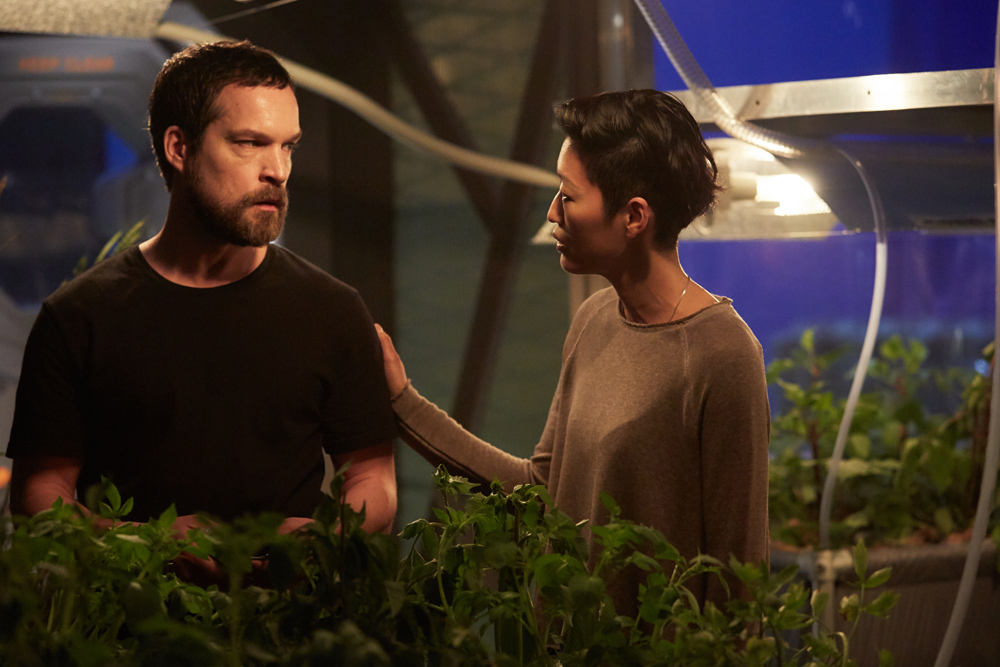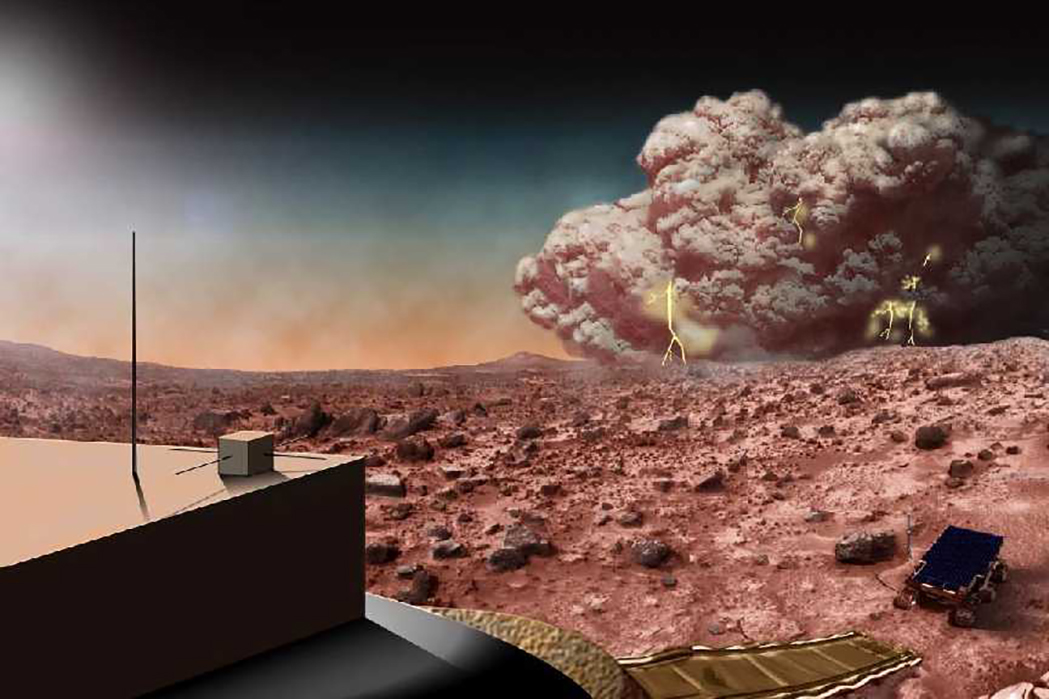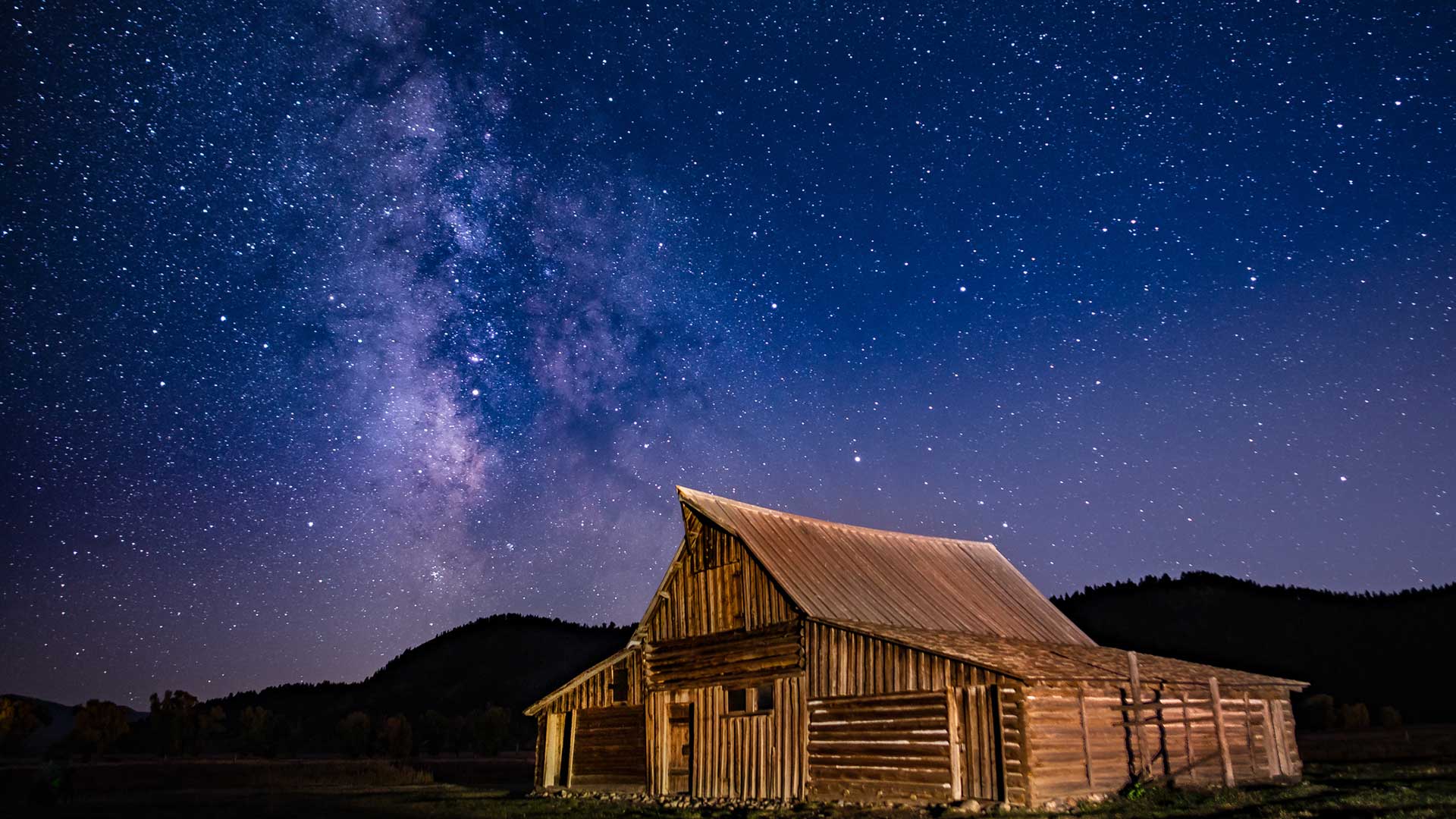Nat Geo's 'Mars' Airs Test of Psychological Stress

Breaking space news, the latest updates on rocket launches, skywatching events and more!
You are now subscribed
Your newsletter sign-up was successful
Want to add more newsletters?

Delivered daily
Daily Newsletter
Breaking space news, the latest updates on rocket launches, skywatching events and more!

Once a month
Watch This Space
Sign up to our monthly entertainment newsletter to keep up with all our coverage of the latest sci-fi and space movies, tv shows, games and books.

Once a week
Night Sky This Week
Discover this week's must-see night sky events, moon phases, and stunning astrophotos. Sign up for our skywatching newsletter and explore the universe with us!

Twice a month
Strange New Words
Space.com's Sci-Fi Reader's Club. Read a sci-fi short story every month and join a virtual community of fellow science fiction fans!
In the fifth episode of National Geographic's "Mars" miniseries, the Mars colonists' mental stamina is put to the test as the crew works through some seriously stressful situations.
The series, which airs Monday nights on the National Geographic Channel, combines scripted scenes depicting the lives of the first human settlers on Mars with real interview footage featuring some of the leading space exploration experts of our time. While the fictional pioneers struggle to cope with the tumultuous Martian environment and feelings of isolation and helplessness, experts like NASA scientist Jim Green and Andy Weir, author of "The Martian," chime in to provide context and explain what the settlers are going through.
Going to Mars will be more than just a tremendous technological feat. Surviving and thriving on the Red Planet may prove to be the biggest challenge yet for human explorers. Living in an environment that is entirely inhospitable — or even deadly — to human life will require more than just the use of advanced technology and infrastructure for protection. ['Mars': The Epic National Geographic Channel Miniseries in Pictures]
To successfully colonize the Red Planet, one of the most important things that Mars settlers will need is mental resilience. Feelings of isolation can take a toll on a person's mental health. Top that off with the stress of living on a strange, lifeless and deadly planet, and you have a recipe for potentially huge problems. Even one emotionally unstable person in a Mars habitat could put the lives of everyone in the colony at risk, as we'll see in tonight's new episode of "Mars," titled "Darkest Days."
An epic Martian dust storm plagues the crew's colony at Olympus Town, keeping the crew cooped up inside their enclosed habitat for months. The storm is so severe that the crew needs to suspend outdoor activities — even critical missions to make repairs to their outdoor electrical infrastructure and power supply. Meanwhile, a thick coat of dust accumulates on the solar panels, hampering their solar energy production. As the entire colony begins to run out of power, and with no end to the dust storm in sight, the crewmembers must make a real effort to keep their cool.
Dust storms will pose several problems for future colonists on Mars, including poor visibility, damaged machinery and unusable solar panels. Today's Mars rovers have already experienced some of these hardships while weathering Martian dust storms. Such storms can be so enormous that the entire planet can be coated in the dusty clouds. Much like Earth's storms, lightning can also occur on Mars.
For any people living in a Mars habitat during such a storm, that means being stuck inside a bubble with your fellow colonists for months. To test the psychological effects of being separated from all but a few other human beings, teams working on mock Mars missions like the Space Exploration Analog and Simulation (HI-SEAS) have built habitats that are designed for Mars, and they have placed them in remote places on Earth. HI-SEAS put a crew of six people in these habitats for a year to test their emotional endurance. While the crewmembers said that they were extremely happy at the end of the mission, the year that they spent together in isolation was not entirely free of conflict.
Breaking space news, the latest updates on rocket launches, skywatching events and more!
While such simulations provide insight into the psychological troubles colonists might experience when living on Mars, they still take place on a nice, hospitable planet Earth. The Martian environment would only compound the psychological struggles that are bred from living in isolation.
See how the Mars colonists hold up in a tremendously stressful (and dusty) situation tonight (Dec. 12) at 9 p.m. on the National Geographic Channel.
Note: The National Geographic Channel announced today that Episode 5 of "Mars" has been dedicated to the legendary NASA astronaut John Glenn as a tribute. Glenn, who died on Thursday (Dec. 8) at 95, was the first American astronaut to orbit Earth and a former U.S. senator. A short audio clip from Glenn's historic orbital flight will play at the beginning of tonight's episode.
Email Hanneke Weitering at hweitering@space.com or follow her @hannekescience. Follow us @Spacedotcom, Facebook and Google+. Original article on Space.com.

Hanneke Weitering is a multimedia journalist in the Pacific Northwest reporting on the future of aviation at FutureFlight.aero and Aviation International News and was previously the Editor for Spaceflight and Astronomy news here at Space.com. As an editor with over 10 years of experience in science journalism she has previously written for Scholastic Classroom Magazines, MedPage Today and The Joint Institute for Computational Sciences at Oak Ridge National Laboratory. After studying physics at the University of Tennessee in her hometown of Knoxville, she earned her graduate degree in Science, Health and Environmental Reporting (SHERP) from New York University. Hanneke joined the Space.com team in 2016 as a staff writer and producer, covering topics including spaceflight and astronomy. She currently lives in Seattle, home of the Space Needle, with her cat and two snakes. In her spare time, Hanneke enjoys exploring the Rocky Mountains, basking in nature and looking for dark skies to gaze at the cosmos.


